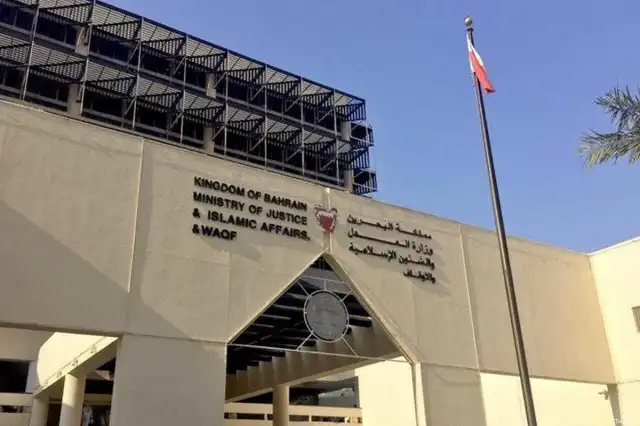Bahrain legal reforms are transforming the Kingdom’s judicial system to reduce court caseloads, enhance efficiency, and promote timely access to justice. With rising case numbers and limited resources, these reforms introduce modern practices, digital solutions, and alternative sentencing to ensure a more effective legal system.
Introduction
The Kingdom of Bahrain has recognized the need to modernize its legal system to ensure timely and fair justice. With an increasing number of cases and limited judicial resources, the government has introduced several measures to streamline court processes and reduce the backlog of cases.
Alternative Sentencing: A Shift from Incarceration
One of the most significant reforms is the introduction of alternative sentencing. This approach focuses on rehabilitation rather than punishment, aiming to reintegrate offenders into society. Instead of traditional prison sentences, individuals may be assigned community service, electronic monitoring, or other rehabilitative measures.
This shift not only reduces the strain on overcrowded prisons but also promotes a more restorative form of justice. By addressing the root causes of criminal behavior, alternative sentencing seeks to prevent reoffending and support the offender’s reintegration into society.
Digital Transformation: Modernizing Court Procedures
Recognizing the role of technology in enhancing efficiency, Bahrain has invested in digitalizing its court systems. This includes the implementation of electronic case management systems, online filing of documents, and virtual hearings.
These technological advancements allow for faster processing of cases, reduce paperwork, and make legal proceedings more accessible to the public. Moreover, digital platforms enable better tracking of cases, ensuring transparency and accountability in the judicial process.
Streamlining Procedures: Simplifying Legal Processes
To further reduce court caseloads, Bahrain has undertaken efforts to simplify legal procedures. This includes revising outdated laws, eliminating redundant steps in legal processes, and providing clearer guidelines for both legal practitioners and the public.
By making the legal system more user-friendly, these reforms aim to encourage individuals to resolve disputes through legal means rather than resorting to extrajudicial methods. Simplified procedures also lead to quicker resolutions, benefiting all parties involved.
Training and Capacity Building: Empowering Legal Professionals
Recognizing that reforms are only effective when implemented by skilled professionals, Bahrain has invested in training and capacity building for judges, lawyers, and other legal personnel. Regular workshops, seminars, and international collaborations ensure that legal professionals are well-versed in the latest laws, technologies, and best practices.
Empowered legal professionals are better equipped to handle cases efficiently, make informed decisions, and uphold the principles of justice.
Public Awareness and Accessibility: Ensuring Justice for All
An essential component of Bahrain’s legal reforms is increasing public awareness and accessibility to the legal system. Through public campaigns, community outreach, and the establishment of legal aid centers, the government aims to educate citizens about their rights and available legal resources.
By making legal information more accessible, individuals are more likely to seek legal remedies, leading to a more just and equitable society.

Impact on Court Caseloads
The combined effect of alternative sentencing, digital transformation, streamlined procedures, and capacity building has led to a noticeable reduction in court caseloads. Cases are being processed more swiftly, and the backlog of pending cases is steadily decreasing.
This not only improves the efficiency of the judicial system but also enhances public confidence in the legal process. Citizens are more likely to trust a system that delivers timely and fair justice.
Challenges and Considerations
While the reforms have yielded positive results, challenges remain. Ensuring consistent implementation across all regions, addressing resistance to change, and securing adequate funding for ongoing initiatives are ongoing concerns.
However, the government’s commitment to continuous improvement and feedback mechanisms indicates a proactive approach to overcoming these challenges.
Regional Influence and Future Prospects
Bahrain’s legal reforms have garnered attention from neighboring countries in the Gulf region. The success of alternative sentencing and digital transformation models has inspired similar initiatives in other nations seeking to modernize their judicial systems.
Looking ahead, Bahrain plans to expand these reforms, incorporating emerging technologies like artificial intelligence for case analysis and exploring further alternatives to incarceration. The goal is to create a legal system that is not only efficient but also just and rehabilitative.
Conclusion
Bahrain’s legal reforms represent a forward-thinking approach to justice, focusing on efficiency, rehabilitation, and accessibility. By reducing court caseloads through alternative sentencing, embracing digital transformation, and simplifying procedures, the Kingdom is paving the way for a more effective and equitable legal system.
As these reforms continue to evolve, Bahrain sets an example for other nations in the region and beyond, demonstrating that modernization and justice can go hand in hand.
Do follow on: Instagram
Read More: Blatter Criticizes FIFA’s World Cup Hosting Decisions: England Overlooked, Saudi Arabia Selected



